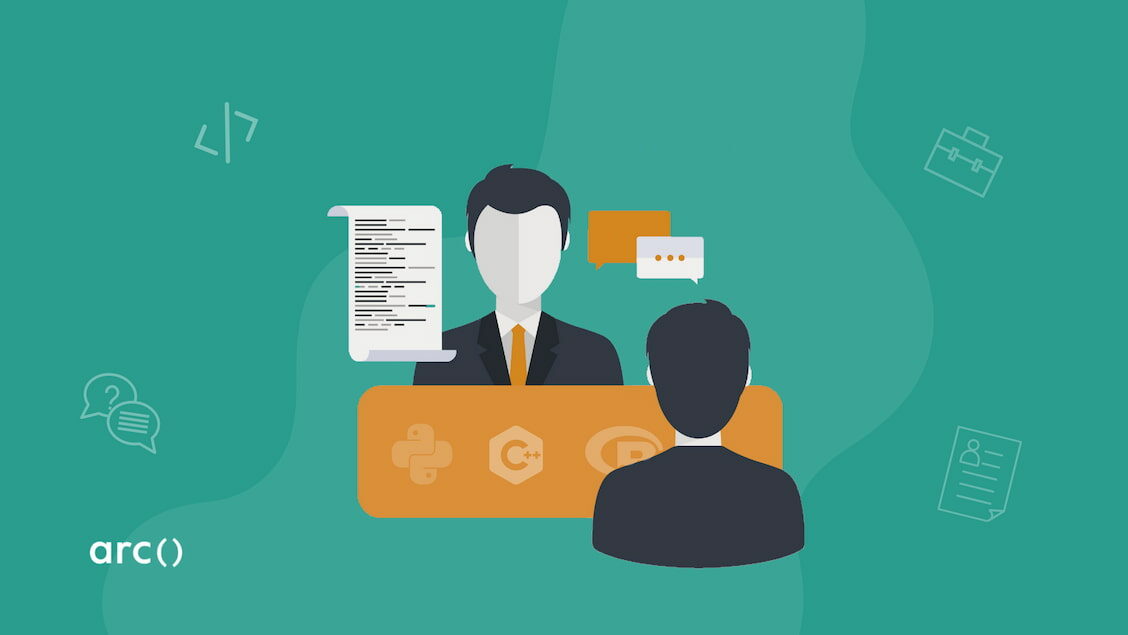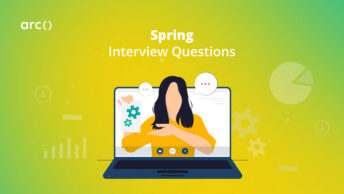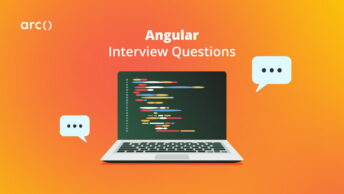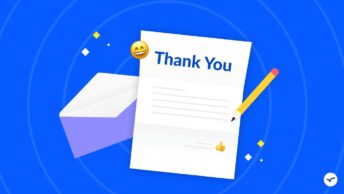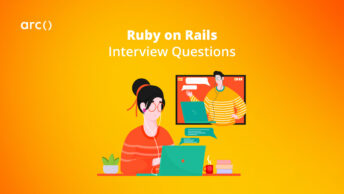The interview process can be challenging, to say the very least.
Non-technical interview questions often seem innocent, but how your candidates answer these questions may make or break the interview. After all, you want someone that’ll be a great addition to the team and culture, not just with hard skills but with soft skills, as well.
So, focusing on the non-technical part can certainly be as important as skill tests, take-home projects, and other technical assessments.
Below, we’ve compiled 15 of the most common non-technical interview questions typically asked during the initial phases of a software developer job hiring process. Understanding how candidates answer these questions can provide valuable information to make informed hiring decisions.
To help you better gauge your candidates, and help your candidates better prepare for their interviews, we’ve included some helpful videos on specific interview questions and how to answer them below!
Looking to hire the best remote developers? Arc can help you:
⚡️ Get instant candidate matches without searching
⚡️ Identify top applicants from our network of 350,000+
⚡️ Hire 4x faster with vetted candidates (qualified and interview-ready)
Try Arc to hire top developers now →
1. Tell me about yourself
Many hiring managers and recruiters like to open the discussion with this introductory interview question. When your candidates answer this question, you want to encourage them to tell a short story, one that explains how they got to where they’re at career-wise.
As David explains:
If your candidate has several job experiences in the same domain, which is common for more experienced developers, ask them to mention the most important ones so they don’t end up monologing to themselves.
2. Why did you leave your previous job?
Or, for people who haven’t left yet: “Why do you want to leave your current position?”
This question is important as it helps you understand your candidates’ professionalism. While it may be tempting for candidates to portray their previous employers in a negative light, you want to look for candidates who can give their answers a positive spin. See it as a red flag if your candidate complains about their previous job excessively.
Here’s what a good answer might look like from your candidate:
Example: I am looking for opportunities that will both allow me to do what I’m good at, which is back-end development, but also give me the opportunity to grow in and learn the latest technologies. I’m particularly interested in blockchain and machine learning, and, unfortunately, I didn’t see that company ever enabling me to do that. But here, at your company, I feel I could really have a chance to develop new programming skills while still being able to be a valuable asset with my current expertise.
3. What are your strengths?
Alternatively: “What is your greatest strength?”
The main goal of this question is to create space for your candidate to do some self-marketing. If you want to provide your candidate with some guidance, make sure to ask them to highlight strengths that make them a suitable candidate.
Encourage them to focus on one or two strengths that fit best with the job description. Include how they’ve applied those strengths in their past jobs to become a better developer, show leadership skills, or simply be a great member to have on the team.
Example answer: I like to think one of my greatest strengths is that I am a good teambuilder. In my last job, we were entering the final stages of a project one night, but feeling a bit done with the whole thing and just discouraged. Though I was also feeling similarly, I tried not to let it show. Instead, I put a smile on one evening as we were heading out and convinced the entire team to head out together for dinner. We ended up having a great time that night, a true bonding session. The next day and ever since, we all just get along, have more energy, and generally work better together.
Read More: How to Build a Software Engineering Portfolio
4. What are your weaknesses?
Alternatively: “What is your biggest weakness?”
When you ask this question, you’re not really interested in your candidate’s biggest weakness. What you want to know is how they handle their weaknesses and the work they’ve done to address them.
As a recruiter, it’s important to guide candidates in providing thoughtful responses to interview questions. When asking about weaknesses, advise candidates to approach their answers in a constructive manner. Encourage them to avoid overly negative responses and instead focus on self-improvement, taking responsibility for their actions, and learning from past experiences. This approach can help candidates showcase their ability to learn and grow, which are valuable traits in a potential employee.
Example: I guess I’d have to say one of my weaknesses relates to having less-than-optimal time management skills. I have this tendency to always try to find one more thing to fix before pushing something to production, which delayed the release of one of my first projects. But, that instance served as a good wake-up call, and I try to follow the mantra now that “done is better than perfect.” I have made it a point to note everything I would like to change and fix them instantly, instead of leaving them to be fixed at the end. And, if it doesn’t make it, we can schedule it for the next release (unless it’s too urgent and important now).
5. Why do you want this job?
During interviews, candidates may be asked variations of this question, such as “Why do you want to work here?” or “Why do you want to join this company?” It’s crucial for candidates to demonstrate their knowledge and understanding of the company and the job profile. Many hiring managers complain that candidates often lack basic knowledge about the company they are interviewing for.
To address this, advise candidates to conduct thorough research on the company’s history, founders, mission statement, and future goals. Armed with this knowledge, candidates can tailor their responses to showcase how their values align with the company’s mission or how their skills and expertise can contribute to the company’s future success.
Ultimately, guiding candidates to provide well-informed and compelling answers can help them stand out in interviews and increase their chances of landing the job.
Example: I applied at several jobs, but, I must say, this is the one that interested me most. The company’s commitment to inclusion and diversity is really inspiring. While many startups and corporations are vowing to become more inclusive and diverse, this one actually follows through. Based on your about page, I clearly see a diverse representation of women and people of color on your engineering team, and I’d be very honored to be a part of that!

6. What was the best thing about your last job?
As a recruiter, you may often ask candidates about the best aspects of their previous job or what they liked most about their previous company. This is a common interview question that can sometimes be challenging for candidates to answer smoothly.
It’s essential to advise candidates to avoid any negativity when responding to this kind of question. Instead, encourage them to provide thoughtful and positive answers. While they should highlight the positive aspects of their previous job or company, remind them to be mindful that the new company might offer similar experiences.
By guiding candidates to share their positive experiences in a thoughtful manner, you can gain valuable insights into their preferences and what motivates them in the workplace. This will help you assess how well they align with the culture and values of the company you’re recruiting for.
Example: I guess my favorite thing about my previous company was their commitment to seeing each of their employees grow professionally. On our engineering team, for example, we were given a monthly budget to use towards improving our skills. And, it really felt as if they wanted us to use it, as they’d send a reminder near the deadline each month to go purchase our books, online courses, or industry event tickets. From what I’ve read about this company, I see some similarities, and it looks like your HR team really tries to help the employees grow, as well.
Read More: How to Stay Motivated at Work: 10 Effective Tips for Remote Developers
7. What things about your last job did you hate?
Alternatively: “What did you like least about your previous role?”
These seemingly ‘negative’ interview questions are best answered in a positive way. While asking your candidate about their pass, make sure you take note of their attitude. If they display bitterness, you may want to consider that a ref flag.
Instead, look for answers that are not only more neutral, but also highlight how your candidates think your company may be able to offer something different in a positive way.
Example: While I wouldn’t use the term ‘hate’ to describe this, I did find the micromanagement to be challenging. What I liked about your company’s job description in particular was the emphasis on autonomy and results over time spent at the keyboard. I believe I thrive in this kind of environment, and I’m eager to prove that.
8. What are your career goals?
The primary objective of this job interview question is to assess whether your candidates’ professional objectives match what the company can offer. This will help you understand what is most important to them in their career, and if they’re interested in working with your company in the long-term.
A good answer should include goals that apply to their current job and future job. You want to make sure you’re hiring someone who’ll stick around. For instance, if your candidate expresses too much interest in their entrepreneurial goals, you may want to tak a step back, as they may not stick with your company for very long.
Example: My career goal is to eventually become a tech lead. I’d love to one day lead my own team, while mentoring my team members on what I know and have learned over the years. To get there, I definitely need to work more on my leadership skills, but I do think I have the communication skills and project management abilities necessary for a future leadership position on an engineering team.
9. Where do you see yourself in the next five years?
This is a standard question often asked in software developer interviews, sometimes as a replacement to the previous question, or sometimes to drill down further. When you ask your candidate this question, you want to know if they’re a good fit for the position.
Example: I am passionate about working as a software developer and making a lifelong career out of it. In the next five years, I hope to learn more about back-end development to allow me to become a well-rounded full-stack engineer.
Read More: How To Use Social Media Thought Leadership To Level Up Your Developer Career
10. Why should we hire you?
Candidates should focus on identifying the skills or capacity gap the company aims to fill and position themselves as the ideal solution. Encourage them to showcase their unique selling points (USPs) that make them stand out from other candidates.
In their response, candidates should confidently highlight why they are the best fit for the position. It’s important for them to not only emphasize technical knowledge but also include non-technical qualities that strengthen their candidacy.
As a recruiter, look for candidates who can articulate their strengths clearly and demonstrate how they can contribute positively to the company’s success. This question provides valuable insights into a candidate’s understanding of the role and their ability to align their skills with the company’s needs.
Example: I am an expert in Python and R. So, I have the exact technical skills the company is looking for. I also hold experience as a team leader, which is an essential requirement for this job. I am always willing to learn new skills which makes me an ideal choice for different projects that might come up in the future. My ability to deliver even under pressure is what makes me stand out.
11. How many years do you plan to work with us?
Employee retention is a challenge for every HR manager. So, this question can always pop up during your interview. You‘r not necessarily asking for an exact number. Instead, you just want to get an idea of how committed your candidates are.
Example: I am looking for stability in my career and I applied for this position specifically because it offers a long-term opportunity. I have gone through your company profile, and I am aware of your employee-supportive culture. I also believe that I will get the maximum opportunity to improve my skills and apply my knowledge working with your organization. So, I am considering this job as a long-term association.
12. What is your ideal work environment?
Teamwork and collaboration between different departments play a significant role in the successful completion of projects. Interview questions like allows you to know where your candidate stands when it comes to working as a team.
Their answer should make it clear that they’re are comfortable working in a collaborative environment. It pays for them to explain their work process and how it helps in teamwork.
Example: I believe the best results can be achieved through teamwork. So, I follow a work process that supports easy collaboration between team members even if I am working remotely. I use different tools (mention the names of a few) to ensure better communication.
Read More: 5 Ways to Stand Out & Get Noticed in Your Current Development Job
13. How will you handle a situation where you are sure your manager is wrong?
This common interview question highlights a practical situation that your candidate might face during their job. Keep in mind, their answer should not portray any negative emotions, rather it should display a professional approach to best solve the problem amicably.
Example: I will discuss my point with my manager in a private, one-to-one session. The discussion will help both of us to understand the different views we hold. It will help us to reach a conclusion that is best for the project.
14. Tell me about a time when you got into a conflict with a coworker. How did you solve it?
Getting into a conflict with a coworker is not uncommon. An argument during a telephonic discussion or a disagreement over email can be considered as a conflict. Your answer to interview questions like this one should explain the situation on a positive note.
Example: In my last job, I had an argument with the tech team representative regarding some system issues that were not resolved even after days. We both handled the situation patiently and after a thorough discussion, we arrived at a solution that worked for both of us. [Explain the solution in more detail.]
15. Do you have any questions for me?
This is usually the last question before you wrap up an interview. Your candidate should ask you about the role, where the company is headed, how you like working there, and any other questions they might have in their mind regarding the position and the company. These questions help demonstrate their interest in the position, but if your candidates ask something that can easily found on your website, you might want to raise a yellow flag.
If you’re a developer, here are more strategic questions to ask the interviewer to reveal essential details about your prospective job, company, role, and team.
Example: What type of growth opportunities can I expect on the engineering team? Can you tell me in a bit more detail about the team I will be a part of? Why is this position open?
Read More: How to REALLY Get a Job as a Self-Taught Developer
Wrapping Up Common, Non-Technical Interview Questions
Now that you know what the most common non-technical interview questions are, prepare to start reaching out to potential candidates who can fill the role.
Encourage candidates to provide honest responses while maintaining a positive tone. Whether they are experienced professionals or recent graduates looking to enter the software engineering field, emphasize the importance of practice in preparing for interviews.
If candidates have any questions about the interview process or need tips on how to answer tough questions, encourage them to reach out and share their thoughts in the comments section. Finally, thank them for taking the time to read and engage with the information provided.
You can also explore HireAI to skip the line and:
⚡️ Get instant candidate matches without searching
⚡️ Identify top applicants from our network of 350,000+ with no manual screening
⚡️ Hire 4x faster with vetted candidates (qualified and interview-ready)


